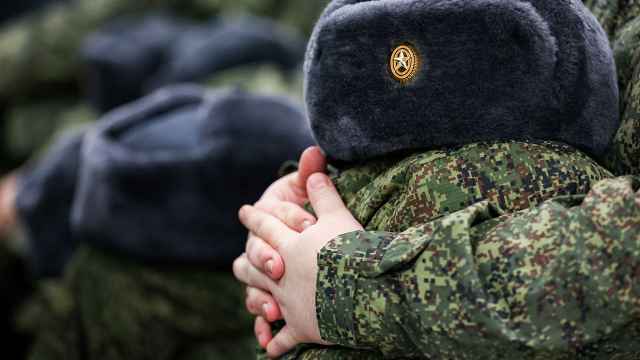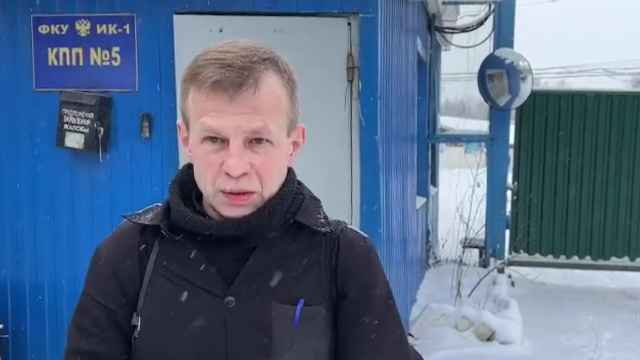| About this blog
|
| Window on Eurasia covers current events in Russia and the nations of the former Soviet Union, with a focus on issues of ethnicity and religion. The issues covered are often not those written about on the front pages of newspapers. Instead, the articles in the Windows series focus on those issues that either have not been much discussed or provide an approach to stories that have been. Frequent topics include civil rights, radicalism, Russian Islam, the Russian Orthodox Church, and events in the North Caucasus, among others.
Author Paul Goble is a longtime specialist on ethnic and religious questions in Eurasia. Most recently, he was director of research and publications at the Azerbaijan Diplomatic Academy. He has served in various capacities in the U.S. State Department, the Central Intelligence Agency and the International Broadcasting Bureau as well as at the Voice of America and Radio Free Europe/Radio Liberty and at the Carnegie Endowment for International Peace. He writes frequently on ethnic and religious issues and has edited five volumes on ethnicity and religion in the former Soviet space. |
Greenpeace Russia welcomed the preparation of the doctrine, and Kristin Jorgensen of Norway's Bellona Group, greeted Russia's new focus on climate change with muted praise. "Until recently," he said, Moscow "officially denied that the entire problem exists." Now, Russia is again a participant "in the world debate."
But like his Russian counterparts, the Norwegian environmentalist said that the new doctrine "was hardly geared toward preventing climate change" but rather serves as "a call to take cover" from the consequences more and more people can see coming and that an increasing number of countries around the world want to take steps to prevent.
The new Russian doctrine, which was approved at the ministerial level last month, argues that "it is possible to reduce the dangers of natural phenomena, cut down on the experiences of liquidating emergency situations, and increase the durability of various economic sectors, such as agriculture, transport and energy," that are likely to be affected by climate change.
Because of its size and location &mdash with much of its territory in the far north at low levels that could be flooded by rising ocean levels and where permafrost is melting &mdash Russia is by nearly universal consent the country likely to be the most hard hit by climate change over the next century.
Some of the impact of climate change is already in evidence, the Bellona Group points out. A century ago, Russia every year suffered 150 to 200 "dangerous natural phenomena," such as flooding. Now the number of such events has risen to 300 to 400 annually, and even greater numbers are predicted for the future.
Eighteen months ago, the Ministry of Emergency Situations issued dire warnings about the Russian north, noting that global warming could turn them into bogs, with many areas becoming flooded or inaccessible. This rise in the water table could also affect natural oil reservoirs, possibly leading to massive contamination of water and land.
One Russian official behind the new doctrine is Yury Truntyev, Russia's minister for natural resources. He notes that by the middle or end of this century, if the world's oceans continue to rise, large portions of St. Petersburg and the Yamal peninsula could be flooded, with portions of Arkhangelsk and Murmansk at risk as well.
Greenpeace Russia says that the doctrine, while a start, is "too little" by itself to achieve the goals of dealing with the problem. And the organization complained that the elaboration of the doctrine "if not under conditions of secrecy then with a complete lack of information for the public" is extremely unfortunate.
Once Medvedev promulgates it, the organization said, there would be "public discussion" about what to do next, including the consideration of creating a new state organization to oversee Russian efforts in this area, something that Truntyev also favors, and setting standards for cutting back emissions.
Nina Lesikina, a Bellona activist in Murmansk, said that she and her members were very disappointed in the document's content. "While the rest of the world is developing and implementing greenhouse gas emissions reduction programs … Russia is selfishly busying itself only with adapting to climate change."
"Stabilizing the climate requires the reduction of global emissions of carbon dioxide by 50 to 80 percent by 2050," she added, saying that achieving that goal would only be possible if all the world's countries, including the Russian Federation, made "a concerted effort," rather than, as Moscow appears to be doing, acting in a way that is only immediately profitable for themselves.
A Message from The Moscow Times:
Dear readers,
We are facing unprecedented challenges. Russia's Prosecutor General's Office has designated The Moscow Times as an "undesirable" organization, criminalizing our work and putting our staff at risk of prosecution. This follows our earlier unjust labeling as a "foreign agent."
These actions are direct attempts to silence independent journalism in Russia. The authorities claim our work "discredits the decisions of the Russian leadership." We see things differently: we strive to provide accurate, unbiased reporting on Russia.
We, the journalists of The Moscow Times, refuse to be silenced. But to continue our work, we need your help.
Your support, no matter how small, makes a world of difference. If you can, please support us monthly starting from just $2. It's quick to set up, and every contribution makes a significant impact.
By supporting The Moscow Times, you're defending open, independent journalism in the face of repression. Thank you for standing with us.
Remind me later.






